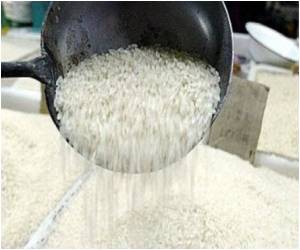
The farmlands within the 18-mile no-go zone around the nuclear plant will not even be harvested as high levels of radioactivity can pose a health hazard for farmers.
Though the Japan Government has admitted that it will take decades to decontaminate areas from radioactivity within the exclusion zone, Fukushima Agricultural Technology Centre scientists hope a new strain of caesium-resistant rice will enable local farmers to return to the affected land.
Researchers are testing varieties of rice, which is indigenous to India, Bangladesh and parts of South America to determine whether any of them have a natural resistance to absorb caesium from the soil.
They aim to create a rice breed that can withstand the effects of prolonged exposure to radioactivity and yet remain safe for human consumption, the Telegraph reports.
Japan's Agricultural Ministry has earlier studied the impact of radioactivity from nuclear weapons tests on crops, including rice, but researchers said this is the first time such tests have been carried out on rice planted in paddies exposed to high levels of radioactivity.
Advertisement
Source-ANI










